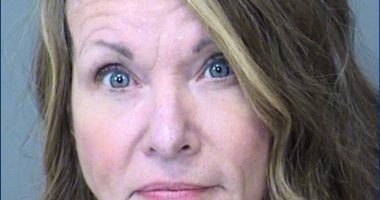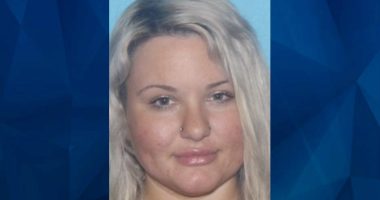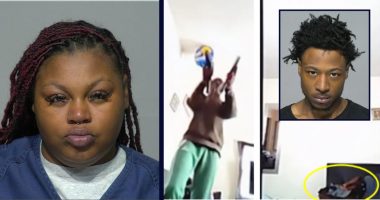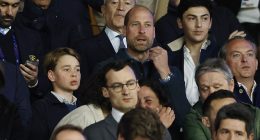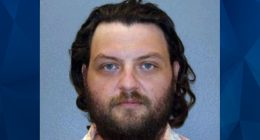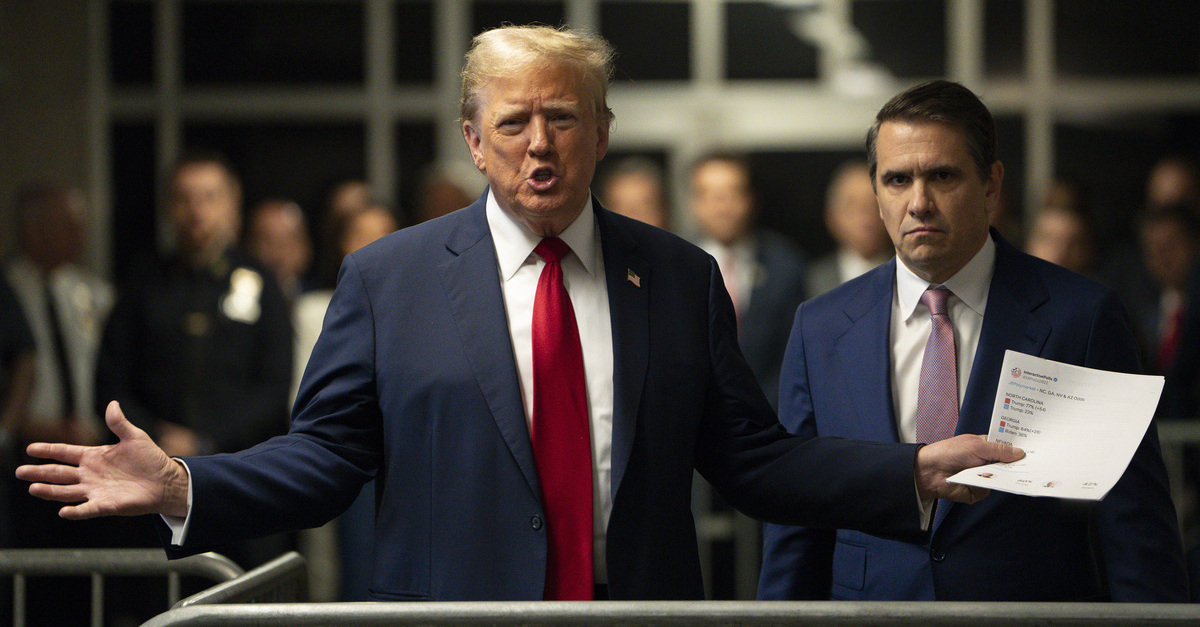
Former President Donald Trump arrives at Manhattan criminal court in New York, on Thursday, May 16, 2024. (Steven Hirsch/Pool Photo via AP)
If Donald Trump, 77, is convicted in a New York City and County court on hush-money charges in the days or weeks to come, federal law will likely loom particularly large on appeal, according to a legal expert.
Some of the contours of the underlying issue were sketched out during a little-noticed evidentiary hearing last Monday.
Away from jurors’ ears, and minutes before the final day of the prosecution’s case-in-chief, New York County Supreme Court Justice Juan Merchan severely curbed what the defense could elicit from an expert witness regarding the Federal Election Campaign Act (FECA).
As Law&Crime previously reported, the 45th president’s defense aimed to call Capital University Law Professor Bradley Smith, a former Federal Election Commission commissioner and chair appointed by Bill Clinton, to the stand to discuss the intricacies of the complex federal campaign finance law as it relates to prosecution’s case. Ultimately, Merchan and the defense could not agree on the scope of Smith’s would-be testimony and the idea was scrapped altogether.
In an interview with Law&Crime, Boston University Law Professor Jed Shugerman said cabining Smith’s testimony made sense because experts generally don’t opine on legal questions – which is an area delegated to the judge. At least when it comes to normal law.
The sheer complexity of FECA, however, could have benefitted Trump’s Manhattan jury in the way of some exposition due to the FEC’s reliance on regulations to enforce the statute, Shugerman said. Still, Smith was not likely to be much of an issue on appeal, if any.
Broader FECA issues implicated in Manhattan District Attorney Alvin Bragg’s case, on the other hand, are another thing entirely.
The charges themselves, at the basic statutory level, are relatively small bore: paper crimes about fraudulent internal business records. Typically, the allegations would be misdemeanors in New York; Bragg upgraded the charges to low level felonies by tying them into an allegedly illegal conspiracy to influence the 2016 presidential election.
More Law&Crime coverage: ‘Not going to help the jury’: Evidentiary hearing in Trump hush-money case highlights pivotal issue for defense on hotly-disputed campaign finance law allegations
Bragg’s office is not attempting to expressly criminalize the payoff to adult content creator Stormy Daniels, 45, in late October 2016.
Rather, the district attorney says the underlying crime is when Trump signed off on — personally signing in some cases — 34 different invoices, ledger entries and checks that align with the 34 alleged violations, when upgraded, of New York Penal Law Section 175.10. Those allegedly fraudulent documents all had to do with $420,000 worth of payments made to Michael Cohen, 57, throughout 2017.
The state’s theory says: those frauds were attempted violations of other laws, including the Federal Election Campaign Act (FECA), and they morphed the second-degree, misdemeanor fraudulent business records offense into the first-degree, Class E felony version.
Maintaining this theory in jury instructions is primed to be an issue for various reasons — some obvious and some not – including that using FECA as a state-level attempted crime appears to be completely novel in the law, if perhaps somewhat undergirded by the parallel novelty of the first-ever criminal prosecution of a former U.S. president.
More Law&Crime coverage: ‘Are we really doing this’: Documents recently unsealed by Mar-a-Lago judge reveal tense grand jury exchange between prosecutor and Trump lawyer over attorney-client privilege
“The bigger concern is: this is not the case to be testing out a new theory for the first time in American history to find out how to interpret the FECA pre-emption clause,” Shugerman told Law&Crime.
The FECA pre-emption clause, contained at 52 U.S.C. §30143, reads, in relevant part:
State laws affected…the provisions of this Act, and of rules prescribed under this Act, supersede and preempt any provision of State law with respect to election to Federal office.
Shugerman previously outlined some issues with using FECA as part of the state’s case in an op-ed for The New York Times.
“I could find no previous case of any state prosecutor relying on the Federal Election Campaign Act either as a direct crime or a predicate crime,” the legal expert previously wrote. “Whether state prosecutors have avoided doing so as a matter of law, norms or lack of expertise, this novel attempt is a sign of overreach.”
More Law&Crime coverage: ‘They’re hoping they can silence me’: Trump’s latest Truth Social rant targets Jack Smith and accuses special counsel of ‘doing very bad things’ in response to gag order request
Recent developments in the case related to the jury instructions, and those long-lingering-and-simmering pre-emption concerns, may prove the source of a worthwhile appeal – at least in the form of significant delay – for Trump, should the former president be convicted.
“The point is: the shoehorning of a federal crime into state court is one of many issues that would be raised on appeal,” Shugerman said. “The second issue is: there’s a good reason why you can’t take another jurisdiction’s complicated white collar crimes and prosecute them in another jurisdiction – there’s no case law on that anyway.”
And, the genuine novelty of the prosecution using the FECA statute will almost certainly provide ample grounds for appeal.
“They can raise a mix of state and federal jurisdictional and substantive questions on appeal,” Shugerman explained.
More Law&Crime coverage: Grading the participants in Donald Trump’s hush-money trial
But, the law professor cautioned, the jury instructions could pose a more fundamental problem for the state – meaning one that could prove to be an extremely fertile avenue for an eventual appeal.
“Third issue is: can intent to defraud be this broad?” Shugerman asked rhetorically – pointing to the state statute at issue in the case.
Bragg used FECA to upgrade §175.05, the misdemeanor law, into §175.10, the felony law; the lesser law requires “intent to defraud.” But, Shugerman said, the state still has to meet the burden in the first statute, too. And the intent in the lesser crime is specific, not generalized.
“These were all internal documents,” the legal expert noted. “Who is defrauded by internal documents?”
Separate but related to such a line of inquiry – regarding specific, fraudulent intent – is yet another concern that will prove instrumental in crafting jury instructions, Shugerman went on to explain.
“It is time-space continuum impossible for documents falsified in 2017 to defraud anyone in 2016,” the law professor explained. “The business records were made in 2017. You can’t make a business record in 2017 with intent to defraud voters in 2016. If the jury instructions are careful and get this right, then the prosecutors have to prove there was intent to defraud a target circa 2017.”
Getting jurors to make such an inference, Shugerman said, is not impossible – but would be akin to magical thinking made real by the prosecution, like “pulling a rabbit out of a hat.”
Have a tip we should know? [email protected]


